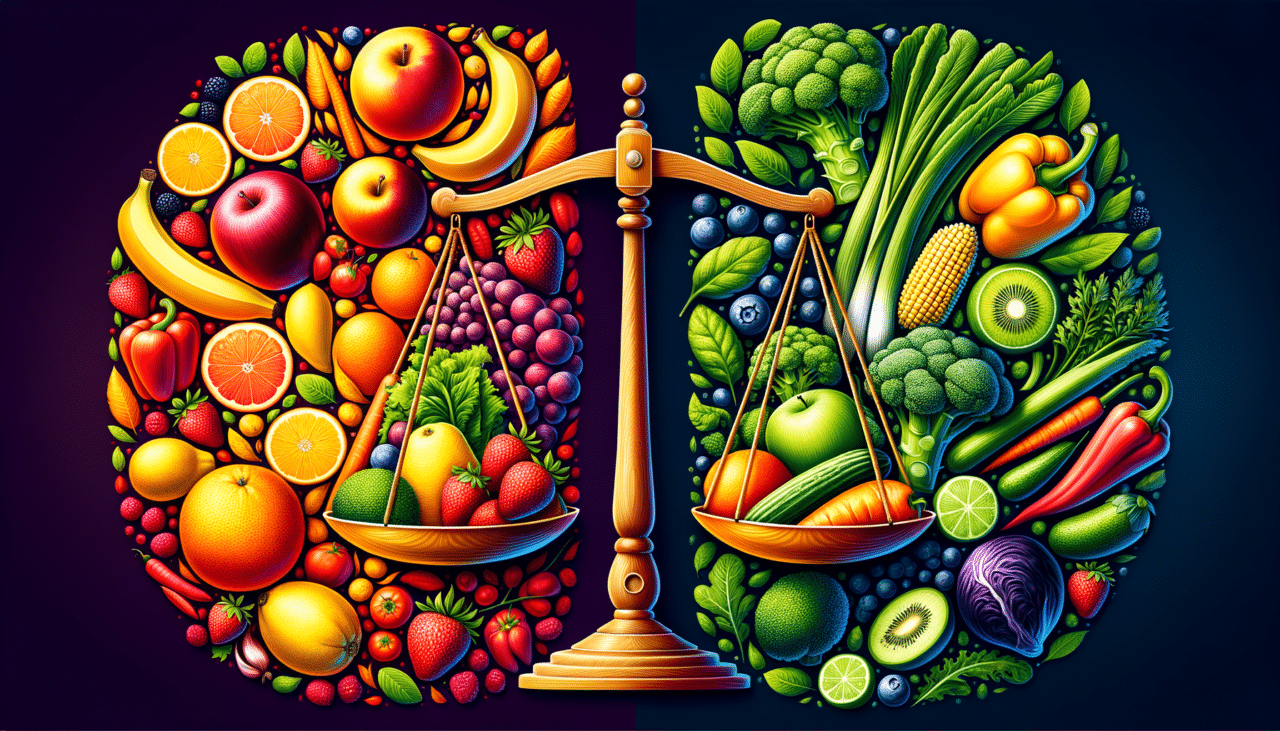When it comes to choosing a healthy eating plan, fruit-based and vegetable-based diets stand out as popular options. Both offer numerous health benefits, but they also have distinct characteristics that cater to different needs and preferences. In this article, we’ll delve into the specifics of each diet, highlighting their advantages and potential drawbacks. To make your decision easier, we’ve also included a comprehensive comparative table that breaks down the main points of each diet.
Characteristics of a Fruit-Based Diet
A fruit-based diet primarily consists of raw fruits, with some enthusiasts opting for a diet that is entirely fruitarian. This type of diet is rich in essential vitamins, minerals, and antioxidants. Here are some key characteristics:
- High in Natural Sugars: Fruits contain a significant amount of natural sugars, which provide quick energy but may not be suitable for those monitoring their sugar intake.
- Rich in Vitamins and Antioxidants: Fruits are packed with vitamins like vitamin C and A, and antioxidants that help combat oxidative stress.
- Hydrating: Many fruits have high water content, which aids in hydration.
- Fiber-Rich: Fruits provide dietary fiber, which is essential for digestive health.
- Limited Protein and Fat: A fruit-based diet is typically low in protein and fats, which are essential for muscle maintenance and overall health.
- Versatility: Fruits can be consumed raw, blended into smoothies, or used in desserts, offering a versatile diet plan.
Characteristics of a Vegetable-Based Diet
A vegetable-based diet emphasizes the consumption of a variety of vegetables, both raw and cooked. It is often chosen for its nutritional density and low-calorie content. Key characteristics include:
- Low in Calories: Vegetables are generally low in calories, making them ideal for weight management.
- Rich in Nutrients: Packed with vitamins, minerals, and phytonutrients, vegetables support overall health.
- High in Fiber: Like fruits, vegetables are an excellent source of dietary fiber, promoting healthy digestion.
- Varied Protein Sources: While not as rich in protein as animal products, vegetables can be paired with legumes and grains for a balanced intake.
- Diverse Cooking Methods: Vegetables can be steamed, grilled, roasted, or eaten raw, offering a wide range of culinary options.
- Supports Heart Health: Many vegetables, such as leafy greens, are known to support cardiovascular health.
Comparative Table: Fruit-Based Diet vs. Vegetable-Based Diet
| Aspect | Fruit-Based Diet | Vegetable-Based Diet |
|---|---|---|
| Main Composition | Primarily fruits | Primarily vegetables |
| Caloric Content | Moderate to high due to natural sugars | Low |
| Sugar Content | High natural sugar content | Low natural sugar content |
| Protein Content | Low | Moderate with options like legumes |
| Fat Content | Low | Can be low to moderate with healthy fats added |
| Fiber Content | High | High |
| Hydration | High water content | Moderate water content |
| Vitamins & Antioxidants | High in vitamin C, A, and antioxidants | High in B vitamins, K, and various phytonutrients |
| Dietary Flexibility | Can be limited due to a focus on raw fruits | Highly flexible with varied cooking methods |
| Health Benefits | Boosts immune system, provides quick energy | Supports heart health, aids in weight management |
| Potential Drawbacks | May lack protein and essential fats | Requires careful planning for protein intake |
Conclusion
Both fruit-based and vegetable-based diets offer unique health benefits and can be part of a balanced lifestyle. If you prioritize quick energy and antioxidant intake, a fruit-based diet might be suitable for you. However, if you’re focused on weight management and a diverse nutrient profile, a vegetable-based diet could be more beneficial. Ultimately, your choice should align with your health goals and dietary preferences.
Before making any significant dietary changes, consider consulting a healthcare professional or nutritionist to ensure your diet is balanced and meets your individual needs. This approach will help you enjoy the benefits of your chosen diet while maintaining optimal health.

Comments (0)
There are no comments here yet, you can be the first!